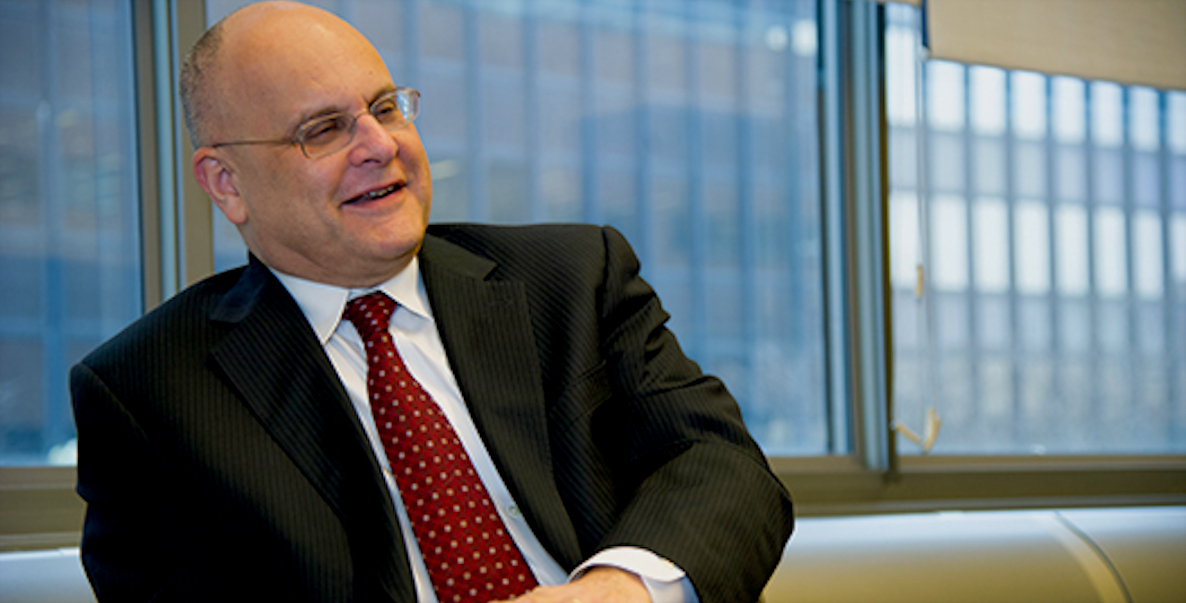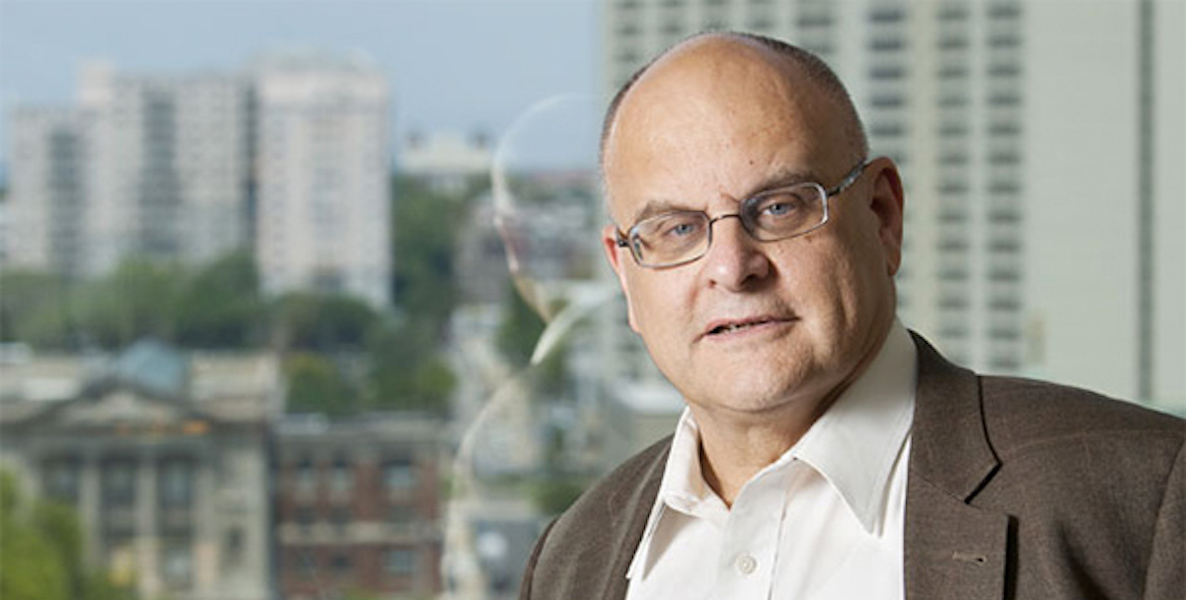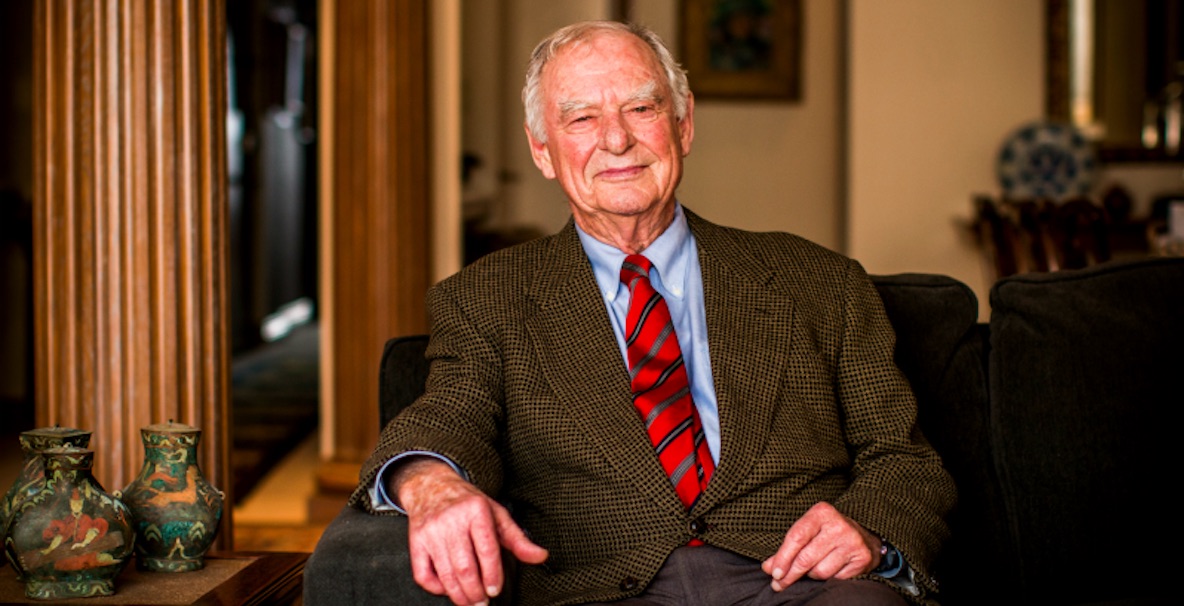In the last week, following the death of Jeremy Nowak, I can’t tell you how many conversations I found myself in with bold-face name Philadelphians who were expressing their worry for our future. “As much as I’d like to be optimistic, this is a bad loss for the city,” one elected official told me.
Well, on the heels of that loss, comes Sunday’s passing of Gerry Lenfest. “Not a good week for Philly giants,” one prominent leader texted me yesterday morning. Lenfest’s passing is such a blow because he’d become one of our town’s few remaining go-to funders of important civic projects. He’d entered the pantheon of Philadelphia philanthropists, as influential as iconic names like Annenberg and Pew. Name the institution—The Inquirer, the Kimmel Center, the Art Museum—and Lenfest has been its savior. That’s why Ed Rendell told the Inquirer “we’ve lost our greatest citizen.”
But as important as what he did is who Gerry Lenfest was. Like Nowak, who, as Ajay Raju pointed out last week, never let on that he had a Ph.D., Lenfest was aw-shucks unassuming. I first met Lenfest in the mid-‘90s, when I wrote a Philadelphia magazine story about him before he sold out to Comcast for $7.6 billion in 2000, and before he and his wife, Marguerite, announced in 2004 that they’d give most of their entire fortune to charity in their lifetimes. He wasn’t widely known—but he had more cable subscribers than anyone in the country.
The loss of both Nowak and Lenfest within a week of one another is a pointed reminder that Philadelphia needs more dreamers, and more doers.
His company headquarters in Pottstown was a one-story stone building with a sign outside that said, simply, “Cable TV.” Inside, he’d pad around the hallways in a tattered tweed jacket and loafers, eating lunch with his employees in a room with two vending machines and three large round tables. Even then, there was something inspiring about the distance between what he’d built and who he was.
“This is all there is,” he said, sweeping his hand through the air. “Our corporate offices.” At the time, his net worth was a mere $2.4 billion; “I’ve had about $2.4 billion worth of good luck,” he said, shrugging off my “how’d you do it” questioning.
![]() The Inquirer has done a stellar job of capturing just what made Lenfest so captivating since 2004, when he entered, and remade, the city’s philanthropy space. But I want to zero in on one little-mentioned moment in the Lenfest story that holds, for me, the answer to what Philadelphia needs as a city going forward, particularly as leaders like Lenfest and Nowak tragically leave the stage.
The Inquirer has done a stellar job of capturing just what made Lenfest so captivating since 2004, when he entered, and remade, the city’s philanthropy space. But I want to zero in on one little-mentioned moment in the Lenfest story that holds, for me, the answer to what Philadelphia needs as a city going forward, particularly as leaders like Lenfest and Nowak tragically leave the stage.
In early 1974, Gerry Lenfest walked into Walter Annenberg’s office and asked his boss a question. He’d been Annenberg’s in-house counsel for five years, before serving as editorial director and publisher of Seventeen magazine, another of Annenberg’s holdings. (Yes, at one point, Gerry Lenfest had his finger on the pulse of teen America.)
He was 44 and had a dream. He loved Annenberg—publisher, power broker, philanthropist—but he was dying to work for himself. His dream was not to have to answer to anybody. And so he asked Annenberg to sell him two cable systems: Suburban Cable in Norristown and Lebanon Valley cable.
“I still see Gerry from time to time, and we share a good chuckle that he left me to go run a cable system from his basement,” the late Annenberg told me back then.
Not only did Lenfest leave Annenberg’s Triangle Publications to run a cable system—he did it before there was such a thing as cable programming. Annenberg sold Lenfest the systems for $2.3 million, with $500,000 in cash, which Lenfest was just barely able to raise. All he had to offer his 8,000 subscribers was better reception of the three Philadelphia TV channels: 3, 6 and 10. Soon, bills covered the Lenfests’ ping pong table in the basement Annenberg referenced; he’d embarked upon a start-up venture before the term had even entered the lexicon.
“I remember once, a little lady asked what I did,” Lenfest told me. “I said, ‘I used to be Walter Annenberg’s attorney. Now I run a cable TV system in Lebanon Valley.’ She said, ‘Whoa. You’re going backwards, mister.’”
Sometimes, visionaries only become known as such in retrospect. Lenfest swore to me back then that he had no idea cable TV would blow up as it did. “I just wanted to be my own boss so badly, it could have been anything,” he said.
Let’s say a prayer for us, too, one that asks that a new generation of leaders emerge whose public lives are characterized by the same boldness and spirit of adventure as these giants who have now left us.
Lenfest, who grew up on a farm north of Lambertville, New Jersey, may have inherited that entrepreneurial bent. His mother died when he was 13, and his father was a naval architect and marine engineer who worked for a large company selling diesel engines for ships. In his forties, Harold Lenfest risked it all to start his own business, manufacturing watertight doors and ship steering equipment. Gerry had a troubled youth; his mother gone, his father away on business, he was raised by a deeply religious Pennsylvania Dutch woman and spent years acting out and raising hell.
But the example of his father’s mid-life WTF career move stuck with Gerry Lenfest, and it’s that spirit of adventure that resonates, particularly this week. The loss of both Nowak and Lenfest within a week of one another is a pointed reminder that Philadelphia needs more dreamers, and more doers.
In 1984, Jeremy Nowak had a $10,000 grant and a dream to start a financial fund ![]() that raised money from corporations and investors in order to bring affordable housing and grocery stores to distressed neighborhoods; he went on to do so to the tune of in excess of $1 billion. Similarly, in 1974, Gerry Lenfest had a dream to be his own boss, and he walked away from a cushy legal career to take a chance on an industry no one had yet heard of. Both realized their dreams and went on to dedicate themselves to their fellow citizens in ways that boggle the mind.
that raised money from corporations and investors in order to bring affordable housing and grocery stores to distressed neighborhoods; he went on to do so to the tune of in excess of $1 billion. Similarly, in 1974, Gerry Lenfest had a dream to be his own boss, and he walked away from a cushy legal career to take a chance on an industry no one had yet heard of. Both realized their dreams and went on to dedicate themselves to their fellow citizens in ways that boggle the mind.
There’s a lot in the Lenfest story to shake your head at. This idea of giving away all of your billions to good causes in your own lifetime? Kinda hard to relate to. I suspect I’d be on my own private beach somewhere, having gotten over my concerns about our civic life real quick. But, to me, the thing we need to take from Lenfest the most—and from Nowak—is the object lesson of their early WTF moments. Because, too often, this town—the nation’s first start-up, after all—plays it too safe, and settles for the merely incremental improvement over the bold move.
There will be a lot of prayers said this week for Gerry Lenfest’s spirit and for his family, as there were last week, for Jeremy’s. But let’s say a prayer for us, too, one that asks that a new generation of leaders emerge whose public lives are characterized by the same boldness and spirit of adventure as these giants who have now left us.






